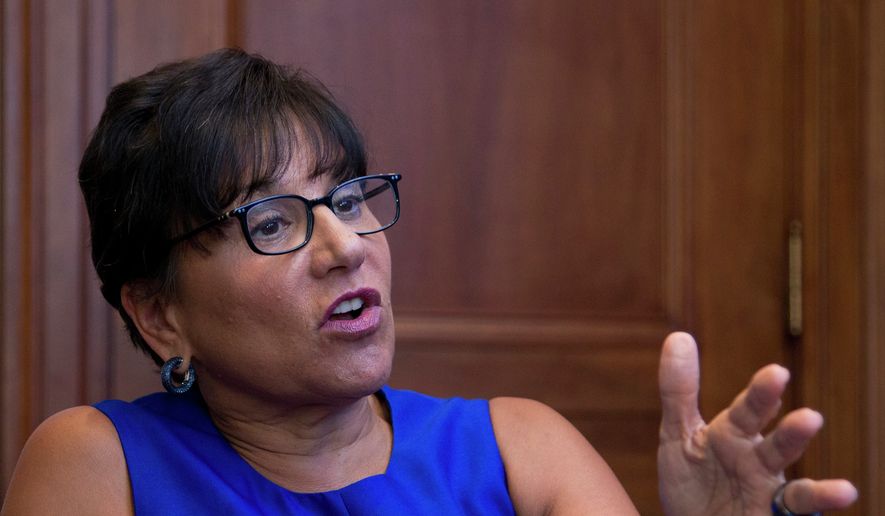A federal patent examiner skipped out on more than 18 weeks of work last year, bilking the government out of more than $25,000 in salary, the Commerce Department’s inspector general said in a report Wednesday that concluded it’s too far easy to cheat the patent office.
The man, identified in a summary report only as “Examiner A,” received nine separate warnings for bad work between 2012 and 2014 and was consistently given the lowest possible rating, but was kept on staff anyway, the investigators said.
It wasn’t until an anonymous tipster sent letters to two U.S. Patent and Trademark Office (USPTO) supervisors that the man faced an investigation, which found gross abuse.
The man would regularly ignore phone calls and emails from people who were trying to apply for patents, and uncovered one instant chat session between the man and another examiner where they plotted to ditch work and go hit golf balls. In other chats he planned outings to play pool or eat out — each time claiming to have worked a full day.
In the case of the golf outing, he only put in three hours of work that day, but claimed eight hours’ pay.
Most of the abuse, however, involved him never showing up in the first place. On those days, investigators found no evidence that he logged into the computer system, swiped his access card at the office or used his laptop. Investigators said they gave him the benefit of the doubt and credited him with hours unless there was conclusive proof he wasn’t working — and even then, he amassed more than 91 days’ worth of bogus work days claimed.
That amounted to 35 percent of the standard work year, and totaled $25,500 in salary he never should have been paid in 2014 alone. The investigators said the government should try to reclaim from the man.
They also said money from 2015 should be recovered, though they didn’t estimate how much that would be. The investigation also didn’t say how much money the employee cheated the government out of from 2012 and 2013.
The inspector general referred the case to the U.S. attorney for the Eastern District of Virginia, who wouldn’t prosecute the case.
An email message seeking comment from the prosecutor’s office wasn’t immediately returned Wednesday afternoon.
The examiner resigned his post just before he was scheduled to be interviewed by the investigators. He sent an instant chat message to a co-worker saying the labor union had told him he could keep his personnel file clean if the investigators never got the chance to speak to him.
Investigators said the episode should be a wake-up call for the agency.
“Despite numerous red flags and the USPTO’s internal controls, the agency did not review Examiner A’s time and attendance records to determine if he was claiming time for work he did not perform,” the investigation concluded.
Agency spokesman Todd Elmer said since the case first came to their attention more than a year ago, they’ve instituted mandatory training on time and attendance for employees, and have “improved agency-wide management handling of conduct issues,”
“Although the vast majority of the USPTO’s almost 13,000 hard-working and highly-skilled professionals perform their jobs with integrity and dedication, the agency nonetheless takes very seriously even one incidence of time and attendance abuse, such as by this particular employee, who is no longer with the agency,” Mr. Elmer said.
He said they are considering whether to pursue the recommendation to try to reclaim the money the examiner bilked.
• Stephen Dinan can be reached at sdinan@washingtontimes.com.




Please read our comment policy before commenting.